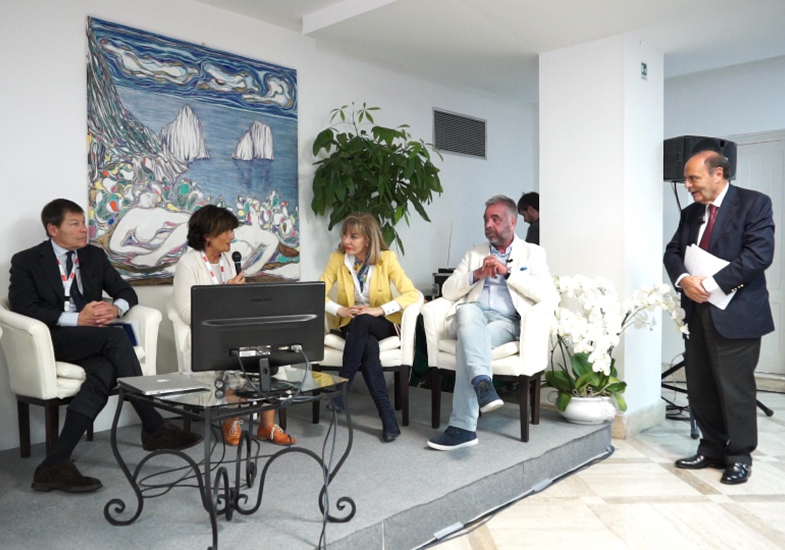IN CAPRI WITH S&R FARMACEUTICI TO DISCUSS WOMEN’S HEALTH

Over three hundred doctors including internationally acclaimed professors were present in Capri with S&R FARMACEUTICI to discuss women’s health
The company based in Bastia Umbra is the main sponsor of the 7th interactive obstetrics and gynaecology course
Capri, 16th May. -‘Women’s health, between scientific evidence and new treatment opportunities’, the topic of focus in Capri on occasion of the ‘7th interactive obstetrics and gynaecology course’, directed by Fabrio Sirimarco and organised by Ems Group, from Thursday 11th to Saturday 13th May. S&R farmaceutici, a company based in Bastia Umbra, is the Main Sponsor of the three-day event, which since 2015 has been active in the commercialisation of propriety and licensed pharmaceuticals, with focus in the areas of gynaecology, urology and diabetology, as well as in the development of nutraceutical products and medical devices. Over three hundred speakers, including internationally acclaimed gynaecologists and obstetricians provided extensive food for thought with in-depth coverage by the journalist and television presenter Bruno Vespa, together with guests on the first day, including Giovanni Scambia, director of the scientific centre of women’s and children’s health at the University Polyclinic Agostino Gemelli in Rome, prof. Alessandra Graziottin, director of the Centre of gynaecology and medical sexology of the San Raffaele Resnati Hospital, Milan, and Walter Ricciardi over the phone, President of the National Institute of Health.
Mario Dionigi, CEO of S&R farmaceutici commented: “We are proud to have participated in this convention in which eminent medical professionals made their contribution. For a young company like ours, it is a significant occasion for visibility which further reinforces our conviction that we are on the right track. Not least due to significant results achieved by the company in terms of our strength on national territory”. Sirimarco went on the explain how “the overarching topic of this course is women’s health. The aim is to give those with new treatment offerings to raise awareness among colleagues”. Graziottin affirmed that “There is a biological injustice due to differences between men and women, however gynaecologists know about all hormonal treatments to fight it.
Until puberty, children have the same prevalence of inflammatory and autoimmune diseases. From puberty onwards, the occurrence of these diseases triples in women, whereas in men, the hormone testosterone is produced constantly, keeping the inflammatory and autoimmune system in check, while in women, the cyclical nature of hormone levels and reduced levels during menstruation causes inflammation varying in intensity, 13 times each year. Such recurring inflammation throughout their life significantly impacts women’s health. Menopause marks the second great ‘injustice’. While men have testosterone throughout their life, women in menopause lose oestrogens, progesterone, 50% of testosterone and 70% of the most important of all these hormones, dehydroepiandrosterone.
With personalised hormonal therapy, us gynaecologists can ensure the well-being of women and make sure they can stock up on vital energy. Otherwise women experience hot flashes, nocturnal tachycardia, insomnia, joint pain, reduced libido and urinary incontinence”. Scambia continued to explain how on the oncological front: “Many things have changed today, in terms of prevention. We know that a significant proportion of ovarian cancers, amounting to nearly a quarter of all such tumours, runs in the family and therefore we can hypothesize preventive strategies, because we also know which genes of our DNA are responsible. What’s more, we are starting to see medicines that are increasingly calibrated according to the molecular characteristics of tumours and therefore this opens a scenario for the development of personalised oncological therapy over the next few years”. Vespa concluded that “Women’s health is a social topic because progress enables us to assist women both in terms of health and sexuality up to ages which a few decades ago were unthinkable. It is a good thing that this topic is being developed, that doctors, healthcare authorities and the pharmaceutical industry are working together to make such progress available to the majority of women”.


Sorry, the comment form is closed at this time.